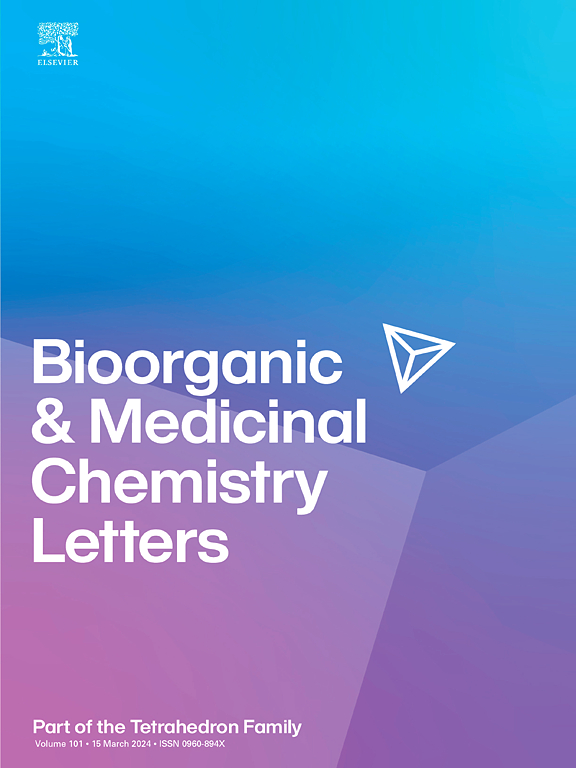Design and evaluation of anaplastic lymphoma kinase degraders using a covalent fumarate handle
IF 2.5
4区 医学
Q3 CHEMISTRY, MEDICINAL
引用次数: 0
Abstract
Targeted protein degradation has emerged as a novel therapeutic paradigm in drug discovery. Despite the FDA approval of anaplastic lymphoma kinase (ALK) inhibitors, the pursuit of compounds with enhanced potency and prolonged efficacy remains crucial to mitigate inevitable adverse effects. In this context, we endeavored to develop ALK degraders utilizing FDA-approved ALK inhibitors—crizotinib, ceritinib, brigatinib, and alectinib—as ALK binders, along with 4-methoxyphenylfumarate as a covalent handle to bind to RNF126 E3 ligase. Among the synthesized compounds, dALK-3—derived from brigatinib—efficiently induced the proteasomal degradation of EML4-ALK and exhibited a 10-fold superior anti-proliferative effect on H3122 cells compared to brigatinib. However, the enhanced anti-proliferative activity of dALK-3 was found to be independent of RNF126, a presumed potential E3 ligase, suggesting the need for investigation of other components within the ubiquitin–proteasome system. Our findings further support the potential application of the fumarate moiety as a binder for E3 ligases in targeted protein degradation.

采用共价富马酸处理的间变性淋巴瘤激酶降解剂的设计和评价。
靶向蛋白降解已成为药物发现的一种新的治疗范式。尽管FDA批准了间变性淋巴瘤激酶(ALK)抑制剂,但寻求具有增强效力和延长疗效的化合物对于减轻不可避免的不良反应仍然至关重要。在这种情况下,我们努力开发ALK降解剂,利用fda批准的ALK抑制剂——克唑替尼、塞瑞替尼、布加替尼和阿勒替尼——作为ALK结合剂,以及4-甲氧基苯基富马酸酯作为共价柄结合到RNF126 E3连接酶上。在合成的化合物中,布加替尼衍生的dalk -3有效诱导EML4-ALK的蛋白酶体降解,对H3122细胞的抗增殖作用比布加替尼强10倍。然而,研究发现dALK-3的抗增殖活性增强与RNF126(一种假定的潜在E3连接酶)无关,这表明需要研究泛素-蛋白酶体系统中的其他成分。我们的发现进一步支持富马酸片段作为E3连接酶在靶向蛋白质降解中的粘合剂的潜在应用。
本文章由计算机程序翻译,如有差异,请以英文原文为准。
求助全文
约1分钟内获得全文
求助全文
来源期刊
CiteScore
5.70
自引率
3.70%
发文量
463
审稿时长
27 days
期刊介绍:
Bioorganic & Medicinal Chemistry Letters presents preliminary experimental or theoretical research results of outstanding significance and timeliness on all aspects of science at the interface of chemistry and biology and on major advances in drug design and development. The journal publishes articles in the form of communications reporting experimental or theoretical results of special interest, and strives to provide maximum dissemination to a large, international audience.

 求助内容:
求助内容: 应助结果提醒方式:
应助结果提醒方式:


